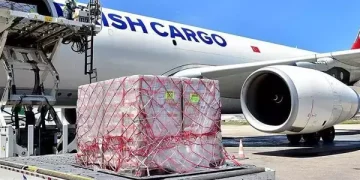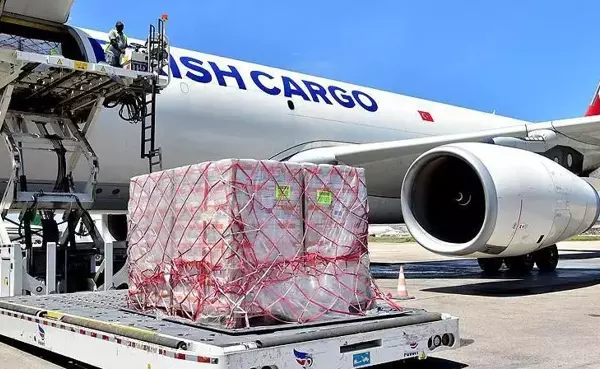March 5, 2025
By Eva Richardson – The Logistic News
The U.S. Airforwarders Association (AfA) has issued a stark warning over the severe disruptions caused by sudden tariff implementations, with many logistics providers struggling to adapt to the evolving trade policies. A recent survey conducted at the AirCargo 2025 conference revealed that 62% of AfA members consider the tariff changes a major threat to their operations, citing rising costs and uncertainty across the global supply chain.
Tariff Uncertainty Fuels Industry Concerns
Freight forwarders, who act as critical intermediaries in international trade, are facing significant operational hurdles due to the abrupt enforcement of new tariff structures. The lack of advance notice has left logistics companies scrambling to adjust shipping routes, pricing strategies, and inventory management.
Brandon Fried, Executive Director of AfA, emphasized the urgent need for greater transparency and advance communication from policymakers to help mitigate supply chain disruptions. “When tariffs are introduced without proper lead time, businesses have little opportunity to prepare, and this can lead to increased costs, delays, and inefficiencies,” Fried stated.
How the Tariffs Are Reshaping Logistics
The ripple effects of these tariffs extend far beyond freight forwarding, impacting global supply chains in several ways:
- Higher Shipping Costs: Increased import duties are forcing businesses to reconfigure their trade routes and logistics strategies, leading to potential price hikes for consumers.
- Shift to Air Freight: With ocean freight facing growing uncertainties, some importers are turning to air cargo as a faster, albeit more expensive, alternative to ensure supply chain continuity.
- Market Instability: Sudden regulatory changes are making long-term planning increasingly difficult for freight forwarders and their clients, creating further volatility in global trade.
Industry Calls for Proactive Solutions
As trade tensions escalate, logistics leaders are calling for a more structured approach to tariff enforcement, ensuring businesses have time to make the necessary operational adjustments. Without this, experts warn that supply chain bottlenecks and rising costs could hinder economic growth and disrupt global commerce.
🚀 Stay connected with The Logistic News for exclusive updates on the evolving trade landscape and its impact on global logistics.





















